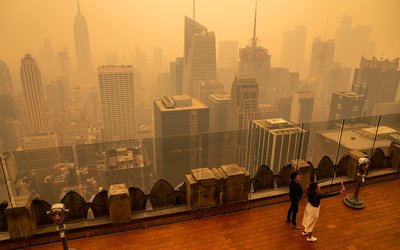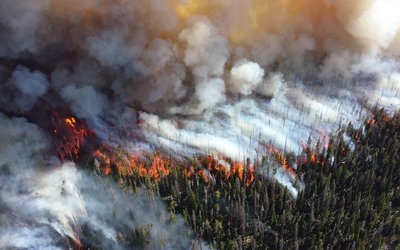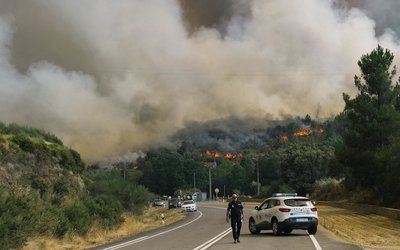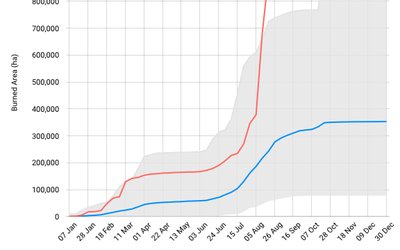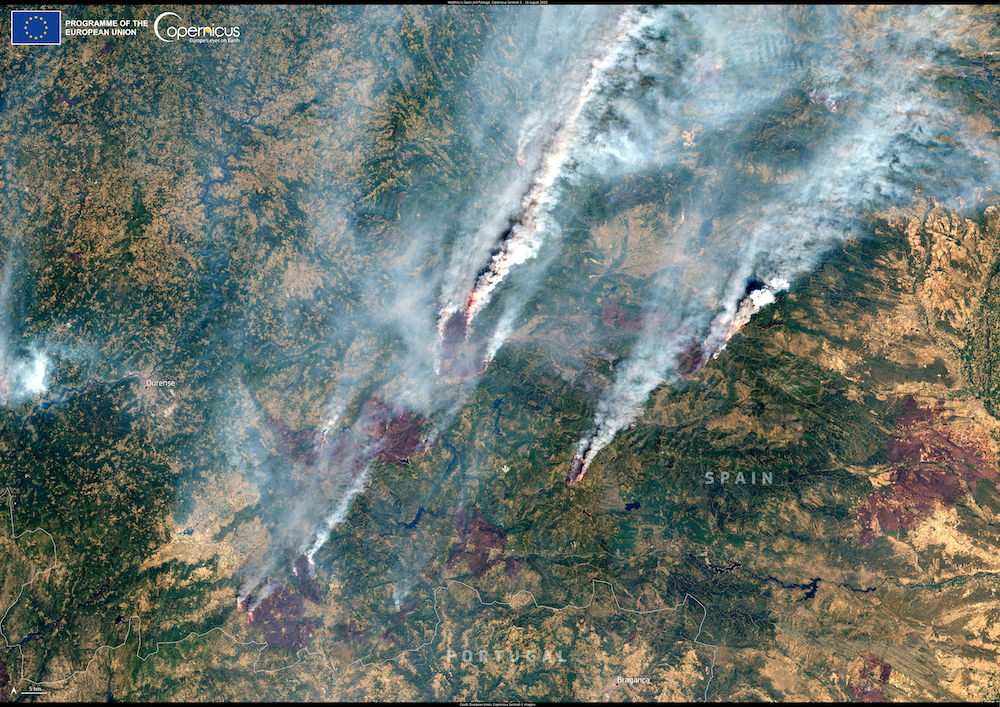
Photo: Massive wildfires in Spain and Portugal in the summer of 2025. Credit: European Union, Copernicus Sentinel-2 imagery.
Wildfire smoke contains a mixture of health-damaging components, such as toxic fine particulate matter with a diameter smaller than 2.5 micrometre (PM2.5) and a variety of toxic gases. Because of that, wildfire events indirectly affect our health through smoke exposure over long distances. Wildfire smoke is more toxic than fine particles from other sources. Wildfire smoke has been linked to health effects in several studies. These studies show that fine particulate matter in wildfire smoke increases mortality. Studies for Europe are sparse, however.
A recent study addressed this gap for Europe. A mortality dataset of almost 20 years, starting in 2004, was used, representing the entire urban and rural population of more than 541 million people in 32 European countries. The database contains more than 164 million counts of deaths.
The results of this study show that wildfire smoke particles have contributed more to all-cause mortality since 2004 than other fine particles in the air. Compared with all-cause mortality, the link between smoke particles and respiratory mortality is relatively strong.
Source: Alari et al., 2025. Lancet Planetary Health.

